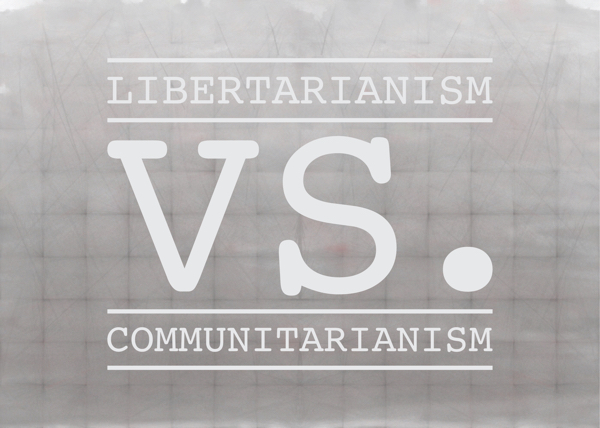Debating the morality of libertarian and communitarian philosophy.

It is 1942. The 2nd world war has been plaguing our country for three years, and thousands of innocent lives have already fallen. Every day you wake up with the same question clouding your mind: “Is our town next?” as you hear the bombs thundering nearby while the children cry in horror. “Have the Nazis reached us?” you ask yourself with little hope that the worn out soldiers will come to your need or that your life will be spared.
So, you decide to join the resistance that will take you far away from home. You say your goodbyes to your worried mom and once playful chubby little brother, who was unlucky enough to be born a year into the war, and join the army in hopes of pushing the Nazis out of your country. The town is proud of you and waves farewell as they pray you return a hero.
You will, indeed, return but as a fighter pilot. You return with an assignment to raid your own town, seized by the Nazis like many towns before. In order to retake your town, you will have to drop bombs you once used to hear thundering nearby, but this time you are sure that your family will be killed, and ironically by you. What are you to do? Would you choose to save your town out of the sense of moral obligation or would you choose to uphold your beliefs in cleansing the country of Nazis in the sense of moral independence? This is all the while knowing you will face death if you back out.
This dilemma has been long debated between schools of thought as it is a recurrent situation during the international and civil wars, and raises the question of the morality of actions and the shaping factors of identity.
As individuals in society, we interact by nature through a common language, and we relate to one another by a set of rules and norms that fall under an umbrella of common culture and social system/organization. Societies may generate a sense of affiliation, but they do not create emotional bonds like they do when interacting on a personal and daily basis within a community. Communities are smaller by nature and limited geographically while societies may extend globally and contain multiple communities.
That being said, a community’s impact is more immediate and defining of an individual’s identity, and this is where communitarianism arises to define common good and moral obligation. Moral obligations are unwritten obligations we feel morally accountable for, even when we are not legally bound. Although one may argue from a libertarian point of view that our community does not define our identity, we have the right of self-ownership, personal autonomy, self-directing freedom, and especially, moral independence[1].
The common good and morality of communitarianism surpass independent morality for the sake of identity. However, it is important to keep into account that human beings are emotional by nature and the ability to overcome your emotions in a hugely impacted decision, like sacrificing your family for the greater good of your country, is not the decision of a common or simple man. It is a decision of a person with great determination and radical actions that will, in the long run, allow him to live guiltless afterward, knowing that that sacrifice was in itself common good. It was once said by Eric Hoffer[2], an American moral and social philosopher, that without radical actions there are no new beginnings.
References
[1] Merriam-Webster, dictionary, autonomy, personal autonomy: https://www.merriam-webster.com/dictionary/autonomy
[2] Wikipedia, Eric Hoffer: https://en.wikipedia.org/wiki/Eric_Hoffer



